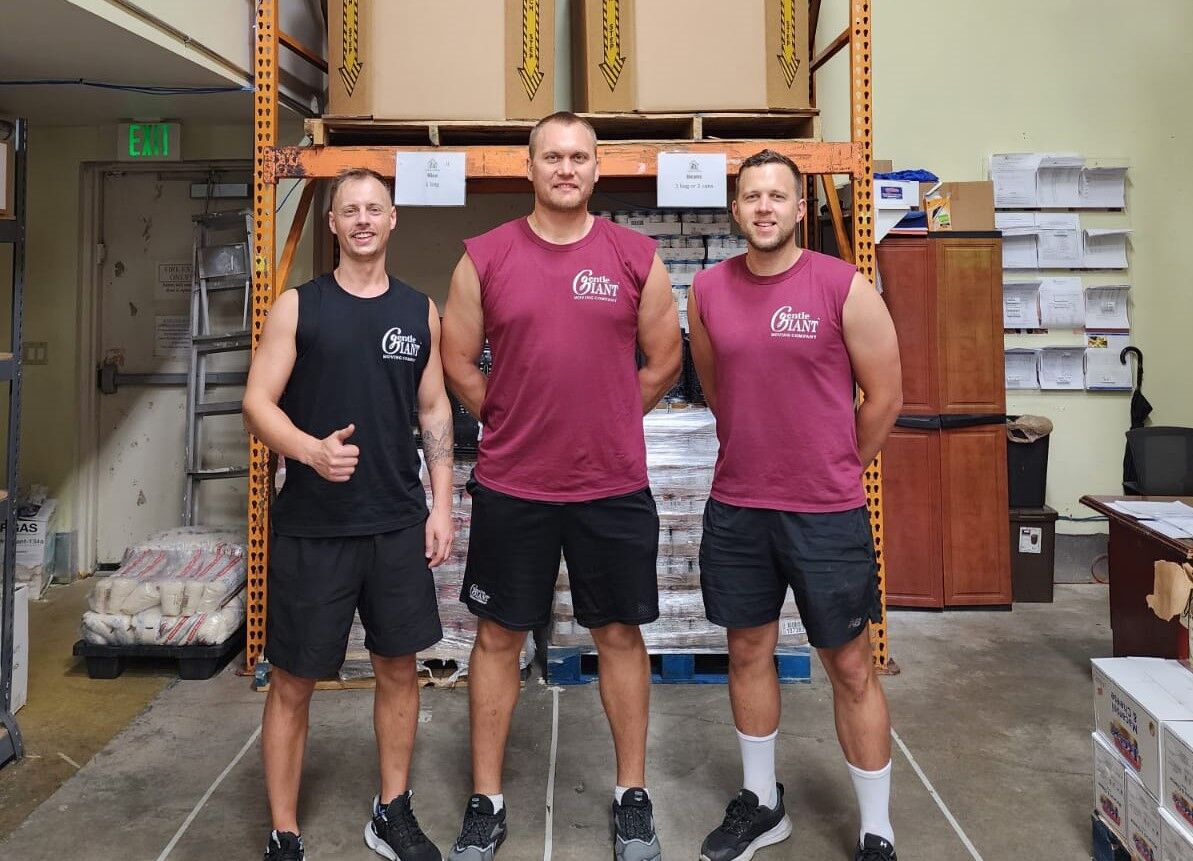
What do office furniture, laboratory apparatus, and gym equipment have in common? You can’t just hire any ole moving company to transport them. Commercial moves require the tools and expertise of commercial movers like Gentle Giant Moving Company!
What is Commercial Moving?
Commercial moving encompasses all activities associated with relocating a business or office like packing, loading, transporting, unloading, and assembly. Unlike residential moving, which involves moving personal belongings from one home to another, commercial moving deals with the transfer of an entire workspace. It often requires a higher level of coordination and expertise due to the complex nature of office equipment and the potential impact on business operations.
What is the difference between Commercial Movers and Residential Movers?
Commercial movers differ significantly from residential movers in scope, equipment, and expertise. While residential movers specialize in transporting personal belongings, such as furniture, clothing, and household items, commercial movers focus on the unique requirements of businesses.
Here are some key distinctions between the two:
Scope: Commercial moves typically involve larger quantities of items, including office furniture, electronics, and important documents. This requires specialized equipment and larger crews. Where a residential move typically requires a maximum of six movers, a large office move may call for up to twenty movers. Often, this is due to the quick turnaround demanded with commercial moves, sometimes as fast as overnight.
Expertise: Commercial movers are trained to handle sensitive office or lab equipment, fragile devices, and confidential documents, ensuring they are transported securely and without damage. They understand the intricacies of disassembling and reassembling office furniture and technology.
Downtime Considerations: Minimizing downtime is critical in commercial moving to reduce disruptions to business operations. Commercial movers have experience executing efficient, time-sensitive relocations to ensure a smooth transition.
Logistics: Commercial moving often requires logistics planning to coordinate the transportation of office assets, including IT infrastructure, to the new location. This may involve multiple trucks, storage facilities, and careful scheduling.
5 Advantages of Using Commercial Movers for Your Move
Hiring commercial movers for your office relocation offers several advantages:
- Expertise: Commercial movers possess the knowledge and experience to handle fragile and expensive office equipment and technology carefully, reducing the risk of damage during the move.
- Efficiency: Commercial movers, like Gentle Giant movers, are trained to work efficiently, minimizing downtime and ensuring a swift transition to the new location.
- Minimized Disruptions: By entrusting professionals with your office move, you can maintain business continuity and avoid significant disruptions to your daily operations.
- Proper Equipment: Commercial movers have specialized tools, equipment, and expertise to transport office furniture and technology safely.
- Customized Solutions: They can provide customized solutions to meet your needs, ensuring a seamless move tailored to your business requirements.
Tips to Prepare for a Commercial Move
To ensure a successful commercial move, Gentle Giant’s seasoned commercial movers share tips to help you prepare.
Plan Ahead: Plan your move well in advance for thorough organization and coordination. We recommend at least four weeks out from your preferred moving date. The sooner you begin your search, the better your options will be. Create a detailed timeline and checklist to keep the process on track.
Assign Responsibilities: Delegate responsibilities to a moving coordinator within your organization who will oversee the move and communicate with the moving company. Each Gentle Giant move is assigned a move coordinator. They are on hand to answer all move-related questions throughout the process.
Inventory and Labeling: Create an inventory of all items to be moved and label them accordingly. This will help ensure that nothing is misplaced or left behind.
IT Infrastructure: Plan the relocation of your IT infrastructure carefully, ensuring that computers, servers, and networking equipment are set up efficiently at the new location.
Communication: Keep your employees informed about the move to reduce anxiety and ensure a smooth transition. Provide them with clear instructions regarding their roles in the process.
Do you have an upcoming commercial move? Speak with a professional commercial moving company like Gentle Giant. We have some great resources to get you started on your relocation, including some recommendations on a timeline for an office move. Check out our moving checklist for information on how to prepare and use our free move estimate tool to determine the cost of your commercial move.

